Zohran Mamdani: The activist and academic
October 31, 2025
In 2010, a young Zohran Kwame Mamdani ’14 stepped foot on Bowdoin’s campus as a first-year student, and now, just 15 years later, he is the Democratic mayoral nominee for New York City, the largest city in the United States.
Mamdani was born in Kampala, Uganda, to award-winning filmmaker Mira Nair and anticolonial academic Mahmood Mamdani. Both of Mamdani’s parents were staunch in their activism and convictions. His father’s work tackles questions of the settler-colonial framework, as seen in his book “Neither Settler Nor Native.” In 2013, Mamdani’s mother declined an invitation to the Haifa International Film Festival in protest of Israel, citing apartheid and the occupation of the West Bank and Gaza.
In his journey at Bowdoin, Mamdani followed in the footsteps of his parents’ activism, both in and outside of the classroom. Mamdani joined the Bowdoin Orient as an editor and columnist, and later contributed op-eds, engaged in constant dialogue with his peers, studied the anticolonial tradition through his Africana studies major and founded the College’s chapter of Students for Justice in Palestine (SJP).
Mamdani’s capstone research project explored the works of Frantz Fanon, a psychiatrist and anticolonial philosopher. Brian Purnell, an associate professor of Africana studies and history who taught many of Mamdani’s Africana studies classes, wrote about Mamdani’s drive in pursuing Africana studies and analyzing the theories of Fanon in an email to the Orient.
“[Mamdani] exhibited a serious devotion to his studies, a wide range of interests and a commitment to investigating academic questions related to justice and human rights,” Purnell wrote. “Mamdani wrote about how Fanon developed a holistic, multifaceted understanding of the problem of colonialism and the need for a total revolutionary break in order for colonized subjects to experience human liberation.”
Early on at Bowdoin, Mamdani was known for his strong convictions and charismatic attitude. Erica Berry ’14, a friend of Mamdani’s who lived on his first-year floor and went on to be a news editor with him at the Orient, described her first impression of Mamdani.
“I liked him immediately. It seemed impossible not to. He was a pro at befriending everyone, bringing together our ragtag group of first years through just a deeply authentic charisma,” Berry wrote in an email to the Orient. “He has a unique ability to move between lighthearted banter, deep listening and thought-provoking conversation.”
One of such conversations is an op-ed Mamdani wrote in 2013 that responded to peer Drew Van Kuiken’s ’17 column criticizing an Orient editorial calling for a more diverse opinion section. The Orient editorial argued for an opinion section that showcases “the diversity of perspectives, activities and personalities we see on campus.”
Van Kuiken expressed that even as a white male between 18 and 22, he could still offer a perspective that his peers wouldn’t necessarily have because of his “left-leaning political beliefs” and the differences in upbringing among people with similar identities.
Mamdani responded to Van Kuiken’s column by exploring the causes for the opinion section’s perceived homogeneity. Mamdani cited white privilege as the factor limiting diversity on the pages.
“Van Kuiken is right—diversity exists within races.… Yet history is not just a footnote or equality simply ‘noble.’ The pervasive male whiteness of the Opinion pages does not stand alone but rather builds on the sadly still-present white male monopolization of both discourse and understanding. While whiteness is not homogeneous, white privilege is,” Mamdani wrote.
While Mamdani was engaging in this dialogue, the College was facing scrutiny in an over 300-page report titled “What Does Bowdoin Teach?” by the right-wing organization the National Association of Scholars (NAS). This report questioned Bowdoin’s inclusion of departments like that of Mamdani’s Africana Studies major.
Natalie Kass-Kaufman ’15, a previous opinion editor for the Orient, edited many of Mamdani’s columns and op-eds. She recalled the effect of both the NAS report and Mamdani on the newspaper’s opinion section.
“The NAS report definitely shaped the opinion section that year in a lot of ways. I saw [Mamdani] as having a big part in shaping the section, insofar as he was extremely adept at tying the goings-on at Bowdoin to the larger world,” Kass-Kaufman wrote.
A recent article by the New York Times on the effect of the College’s education on Mamdani referenced the NAS report and paired it with a speech written by Vice President J.D. Vance criticizing “elites.” The Times discussed how critics “say that [Mamdani’s] degree exemplifies how colleges steep students in leftist dogma.”
Berry and Kass-Kaufman spoke on their experiences within Bowdoin’s political climate at the time and how Mamdani’s activism took courage.
“Coming to Bowdoin from Brooklyn, I had definitely felt some culture shock at how white and un-diverse—and frankly, conservative—Bowdoin was, and that was always a topic I thought [Mamdani] captured incredibly,” Kass-Kaufman wrote.
“Did some students feel like activism in this idyllic New England campus bubble was a waste of time? I think so…. It took someone like [Mamdani]—who not only cared deeply but was essentially socially brave and confident—to vocally challenge that norm,” Berry wrote.
Many students and professors at the College have refuted recent media attacks on Bowdoin’s education. Professor of History Patrick Rael, who taught Mamdani, defended the education Mamdani received in an email to the Orient.
“Both sides of the political spectrum have highlighted courses [Mamdani] might’ve taken that focus on anticolonial history and political theory [that] someone deems ‘radical.’ From reading the news, one might conclude that this is all we teach here,” Rael wrote. “I think it’s important to emphasize that Bowdoin students encounter a broad and rich curriculum that lets them explore in a wide range of ways, many of which would be deemed quite conventional.”
Rael further criticized the reporting of Mamdani’s education and Bowdoin’s status as an elite institution.
“In the reporting on [Mamdani], I’m also struck by media logic suggesting that studying the poorest and most deprived somehow renders us ‘elite.’ Bowdoin has indeed always been an elite institution—not because Fanon appears in the curriculum, but because it serves and reproduces an affluent establishment,” Rael said. “But now it seems we’re only ‘elite’ when the subject is the human rights of historically marginalized people. Meanwhile, [Vance], a product of Yale, tries to pass himself off as a populist. Go figure.”
Assistant Professor of English Zahir Janmohamed, who interviewed Mamdani for Bon Appétit this past summer, spoke on the current discourse surrounding Mamdani’s character and time at the College.
“I can’t help but laugh at this moment that we’re in, that he founded the SJP group that is unchartered. And now he might have the second most powerful elected position in America,” Janmohamed said. “I think it just goes to show that you have to be your authentic and full self.”
Many professors and students have commented on Mamdani in the light of his mayoral bid, but the College itself has not issued any official statement on Mamdani. In an email to the Orient, Senior Vice President for Communications and Public Affairs Martin Mbugua cited Bowdoin policy as preventing the College from issuing statements on active political campaigns.
“Federal law prohibits nonprofits from directly or indirectly engaging in political campaigns. In line with the law, Bowdoin has an established policy of not commenting on alumni while they are running for office,” Mbugua wrote.
Notable Bowdoin alumni have donated against Mamdani’s campaign. Reed Hastings ’83, co-founder and CEO of Netflix, and John Fish ’82, CEO of Suffolk Construction Company, one of the largest building companies in New England, each donated $250,000 to a super PAC called Fix the City dedicated to electing Andrew Cuomo for New York City mayor.
However, current students have rallied around Mamdani. Aniqa Chowdhury ’26, a New York City resident, canvassed for Mamdani this past summer for his Democratic primary bid and is excited about the change Mamdani could bring to the city.
“I think Zohran is going to be a catalyst for change in New York City, particularly for the working class…. My dad is a server at a five-star hotel in [New York City] as a union worker. People like that—members of the working class—lost faith in politicians a long time ago. But Mamdani’s intriguing ability to connect with the various cultural enclaves of [New York City] … is what allowed New Yorkers to have hope again,” Chowdhury said. “Even the act of recruiting people to canvass makes us feel like we are a part of something big.”
Anne Vasquez ’26, another New York City resident, commented on the hope Mamdani’s campaign has brought her.
“I was seeing the campaign grow, [and] I was like, ‘Whoa, everyone’s talking about Zohran Mamdani….’ It was so hopeful and reassuring to see how [the campaign] grew,” Vasquez said.
Berry described Mamdani as a man of strong conviction who was committed to both activism and academics during his time at Bowdoin.
“He was so consistent in his pursuit of a better world.… [P]eople listened to him because he was just so respected and social too. He got people talking,” Berry wrote.

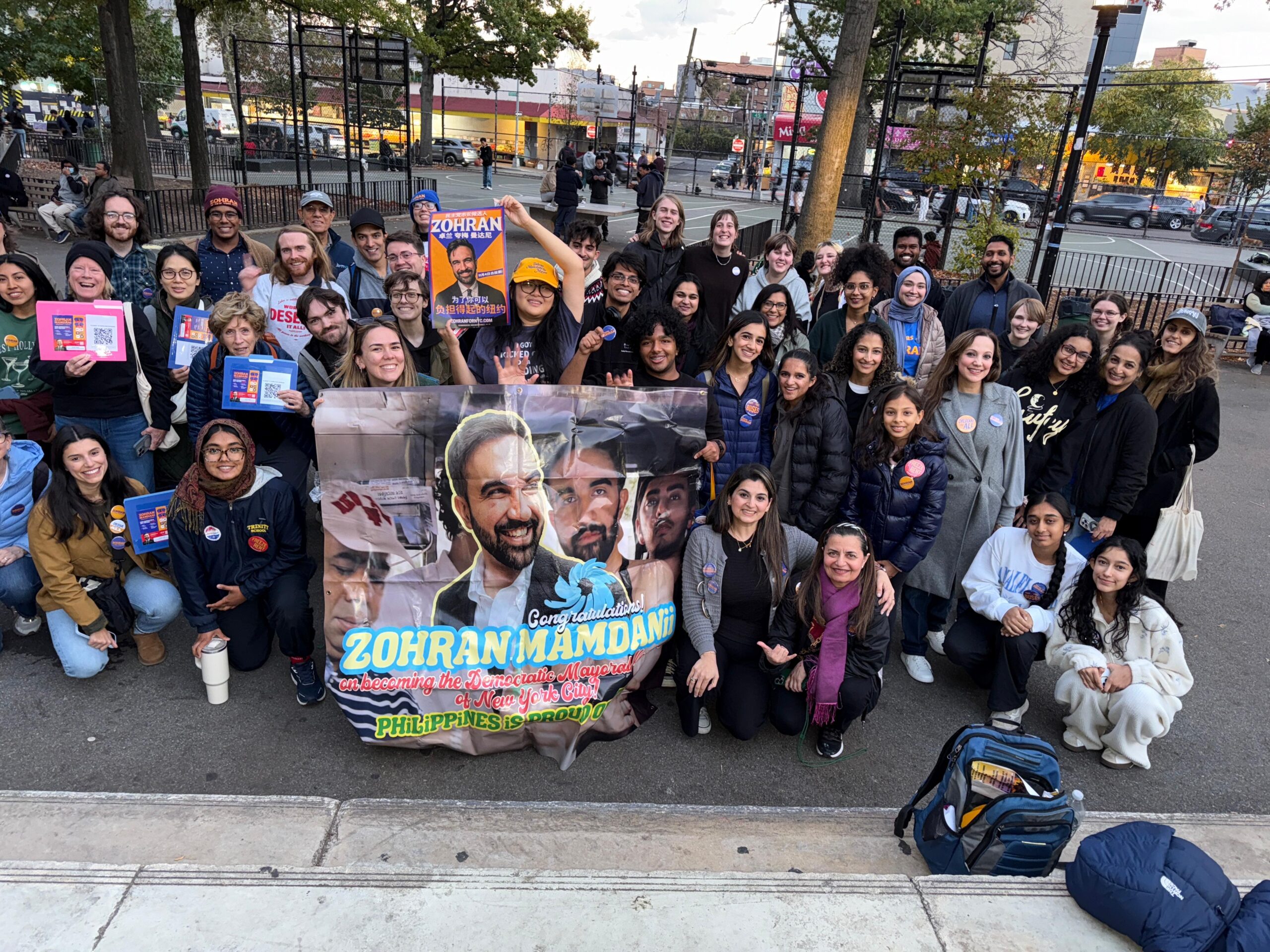 Image courtesy of Aniqa Chowdhury
Image courtesy of Aniqa Chowdhury 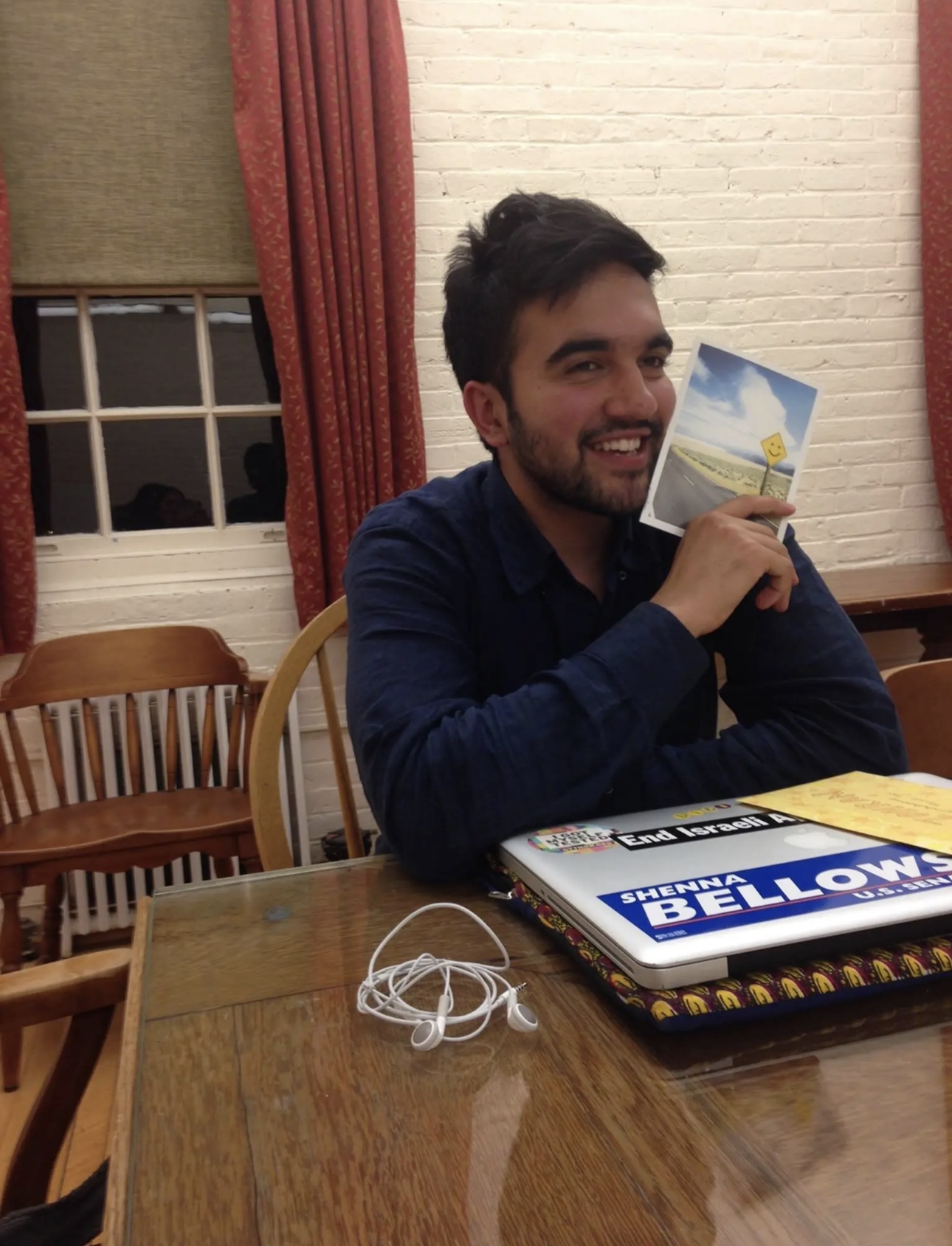 Image courtesy of Bowdoin Archives
Image courtesy of Bowdoin Archives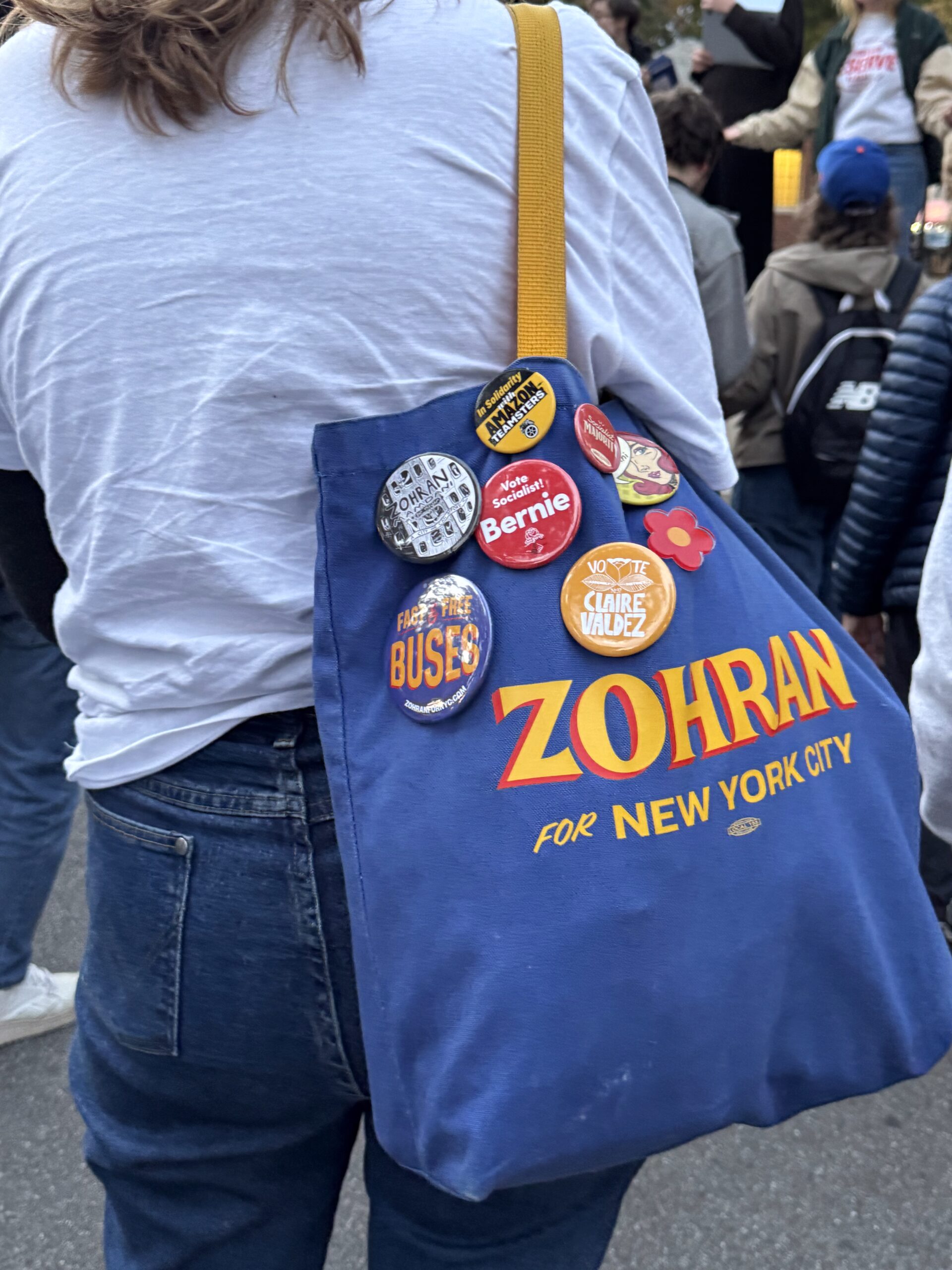 Image courtesy of Aniqa Chowdhury
Image courtesy of Aniqa Chowdhury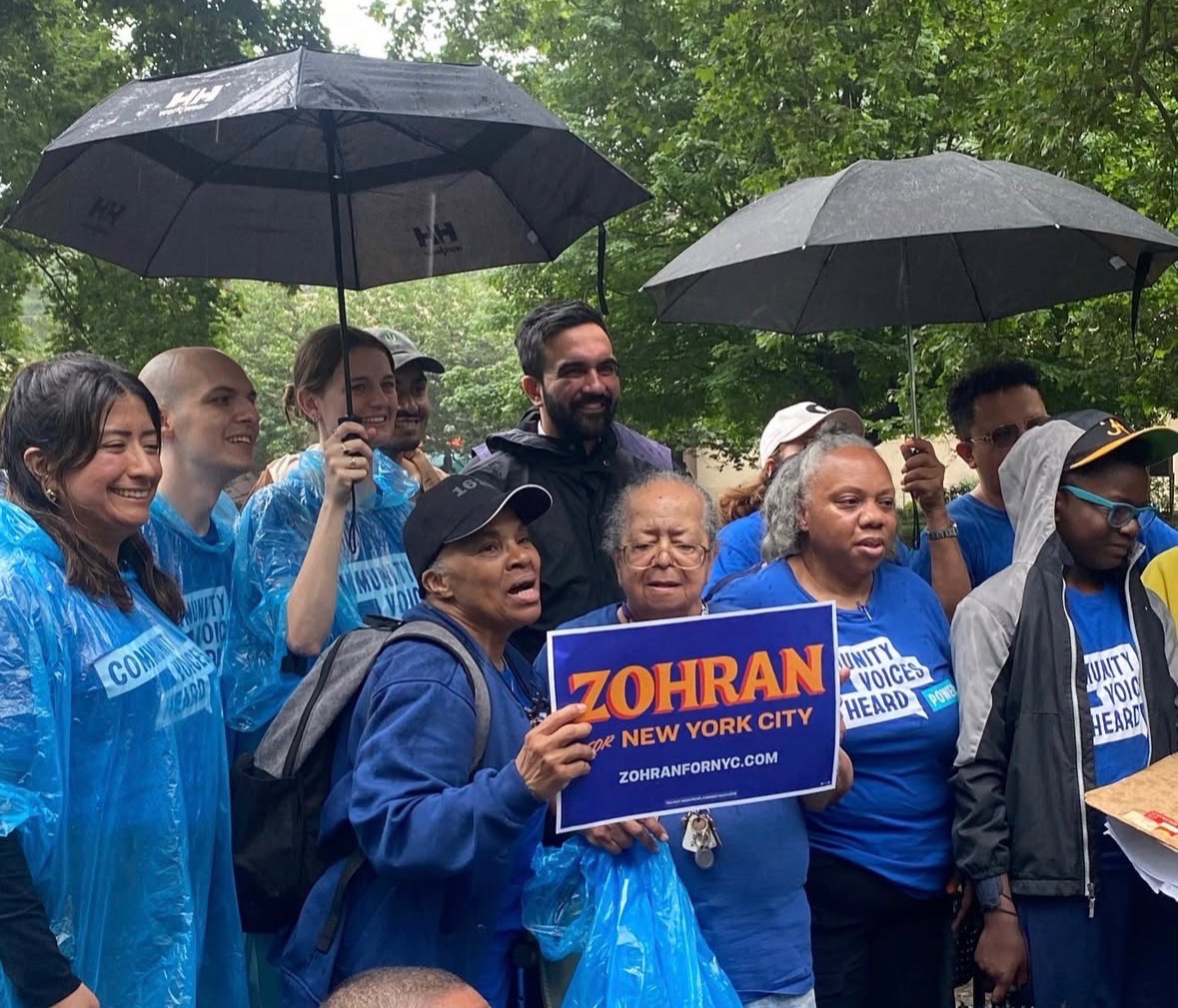 Image courtesy of Aniqa Chowdhury
Image courtesy of Aniqa Chowdhury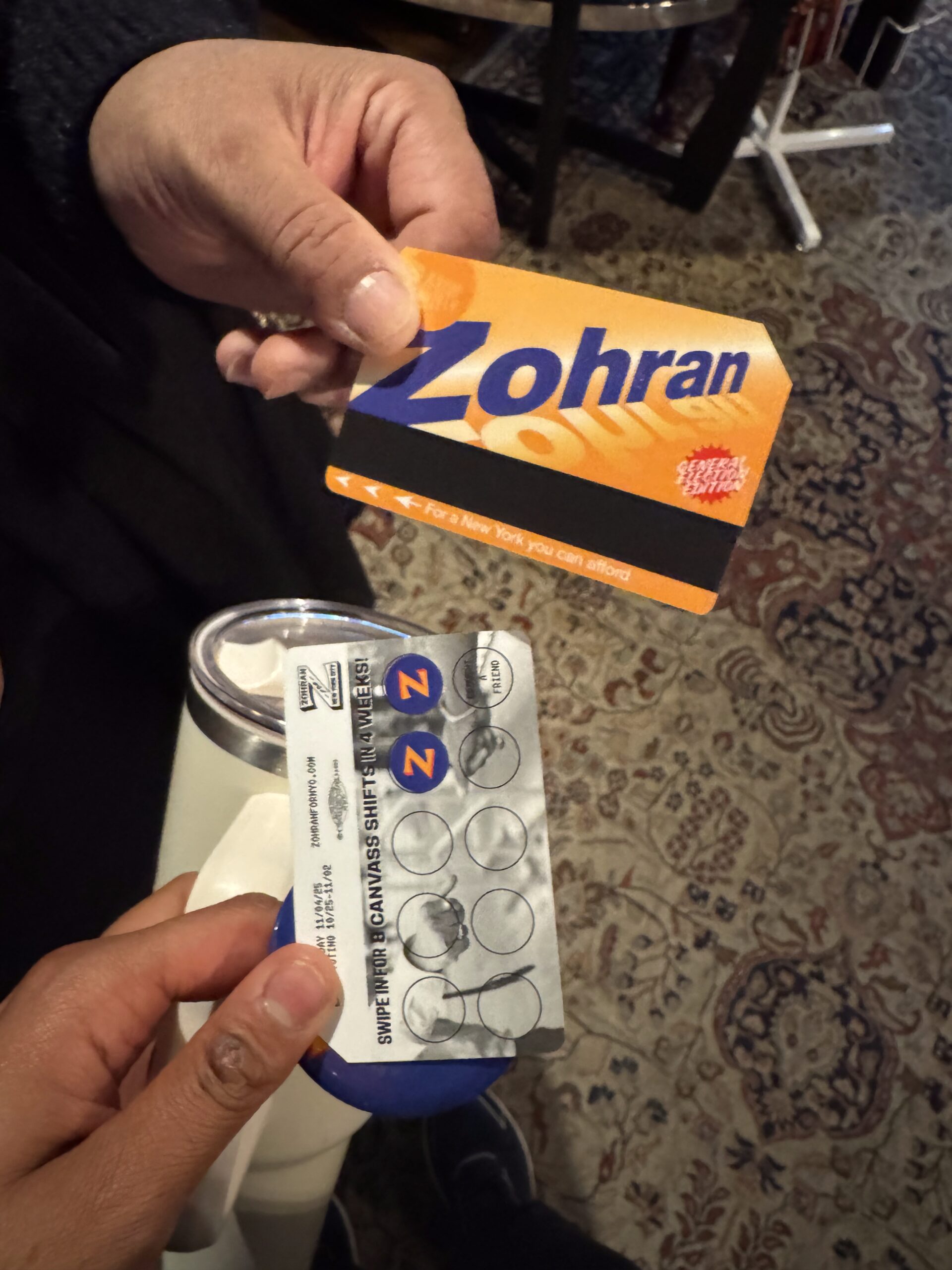 Image courtesy of Aniqa Chowdhury
Image courtesy of Aniqa Chowdhury
Comments
Before submitting a comment, please review our comment policy. Some key points from the policy: